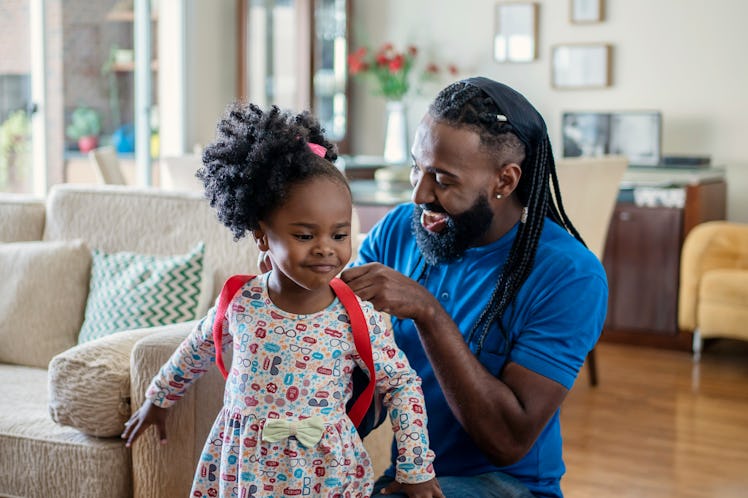How To Determine The Best Age For Your Kid To Start Kindergarten
There’s nothing wrong with delaying a child’s start, but it’s not always the best move.

Kindergarten age is dependent on a host of complicated factors, which can make it tricky for parents trying to decide when their kids should start Kindergarten. Most school districts have guidelines on the earliest Kindergarten age, but that doesn’t mean the suggested age is necessarily the right for all children because Kindergarten-aged kids vary wildly in their developmental abilities. So what is the best age to start Kindergarten?
What Is The Best Age To Start Kindergarten?
Many children have the social, physical, and rudimentary academic skills necessary to start kindergarten by age 5 or 6. However, the needed skills aren’t limited to just academics, it also includes the level of self-sufficiency the child is expected to have attained at that age. For kids who are born just before the cut-off date or who are experiencing a slight developmental delay, it may be better to wait a year.
This decision to delay the start of formal schooling— called redshirting — has grown in popularity, but that doesn’t mean it’s the best choice for every child, says Kathryn Garforth, Ph.D., an educational consultant who performs Kindergarten Readiness Assessments in her private practice.
“The first question I recommend parents ask themselves is, ‘What will my child be doing instead of kindergarten?’” says Garforth. “If the child has additional needs that will be better met outside of the school environment through other support services, then delaying Kindergarten may be the right choice. If the child will continue to do what they have done before with no additional support to help prepare them for Kindergarten, then delaying entry is likely not the right option.”
“If your child suffers from anxiety, delaying Kindergarten entry can do more damage than good,” Garforth explains. “Speaking with an anxiety specialist can provide you with appropriate strategies to use with your child to help prepare them for school.”
Kindergarten Readiness Assessment
“By the time children enter kindergarten, they should be able to perform self-care activities such as feeding themselves, going to the bathroom, and putting on their clothing and shoes independently,” says Garforth. “These skills should be practiced from a young age, and appropriate clothing should be selected for school so they can use the bathroom and put a jacket on by themselves.”
Bathroom skills are obvious criteria for being mature enough for Kindergarten, even if kids aren’t necessarily thorough wipers. And appropriate clothes make sense for a child who still struggles with tying shoelaces or zipping a jacket — a Kindergarten teacher can’t help 22 kids get ready for recess, so slip-on or no-tie shoes make sense.
Motor skills aren’t the only skills that a kid needs to be ready for kindergarten, though. There are a lot of social skills kids need to have.
“Emotionally, children should be able to separate from their parents, know how to take turns, share, and play with others,” Garforth explains. Both parent and child can have a problem with separation, but these skills can be developed before Kindergarten. “Parents can support these skills by having their child play with other children,” Garforth says, “enrolling them in programs at community centers and practice, leaving them with trusted family or friends for extended periods.”
Appropriate socialization can be hard to judge. Parents will need to observe how their child behaves among their peers and how well they obey rules outside of the home, like at the library or a friend’s house. Kids also need to be able to advocate for themselves, because a kid who can’t ask for help is in for a rough time.
A kid may behave appropriately at the park, at a playdate, or at home, but still might not be ready emotionally for the big change of Kindergarten. “Even children who on paper appear to be ready for Kindergarten can struggle with the transition,” says Garforth.
This article was originally published on